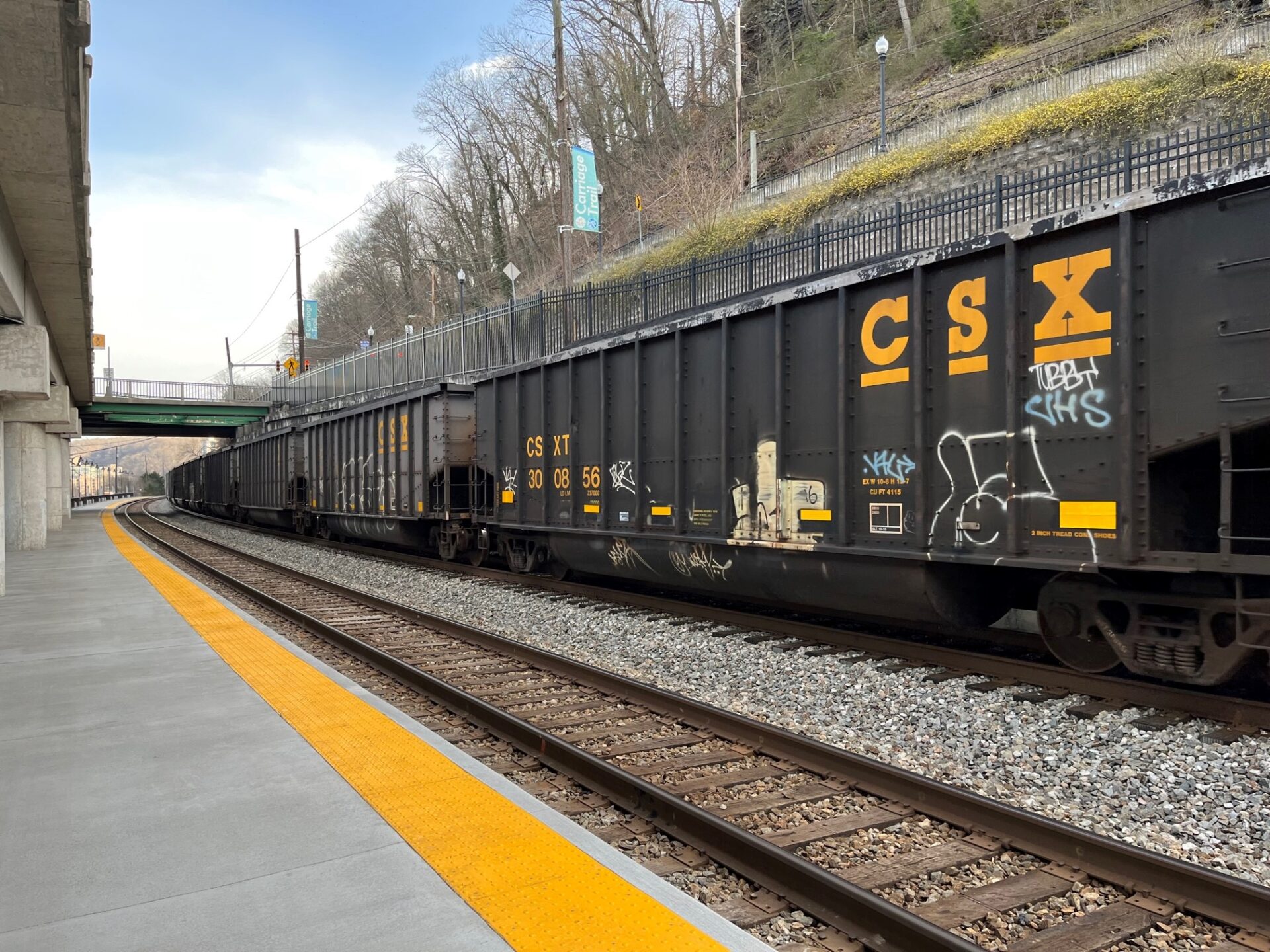Environmental and public health groups want to require railroads to prevent coal dust from escaping from trains.
The Sierra Club and other organizations submitted a petition for rulemaking this week to the U.S. Environmental Protection Agency.
They want the EPA to regulate the coal dust that comes off trains. Coal-hauling railroads, including Norfolk Southern and CSX, would be required to seek permits under the Clean Water Act.
The landmark law has never been applied to transporting coal by rail. Railroads have been transporting coal in open-top cars for more than a century. Some treat coal loads with chemical compounds to prevent dust from blowing off.
Coal dust and particles can contaminate drinking water and aquatic life, the groups say.
They also say the dust can pollute the air, increasing the risk of asthma, bronchitis and heart disease.
In 2019, the Association of American Railroads, the industry’s principal lobbying group, anticipating potential regulatory action, filed a petition with the U.S. Surface Transportation Board to exempt coal dust from trains from the Clean Water Act.
The following year, the agency declined to grant the exemption.
